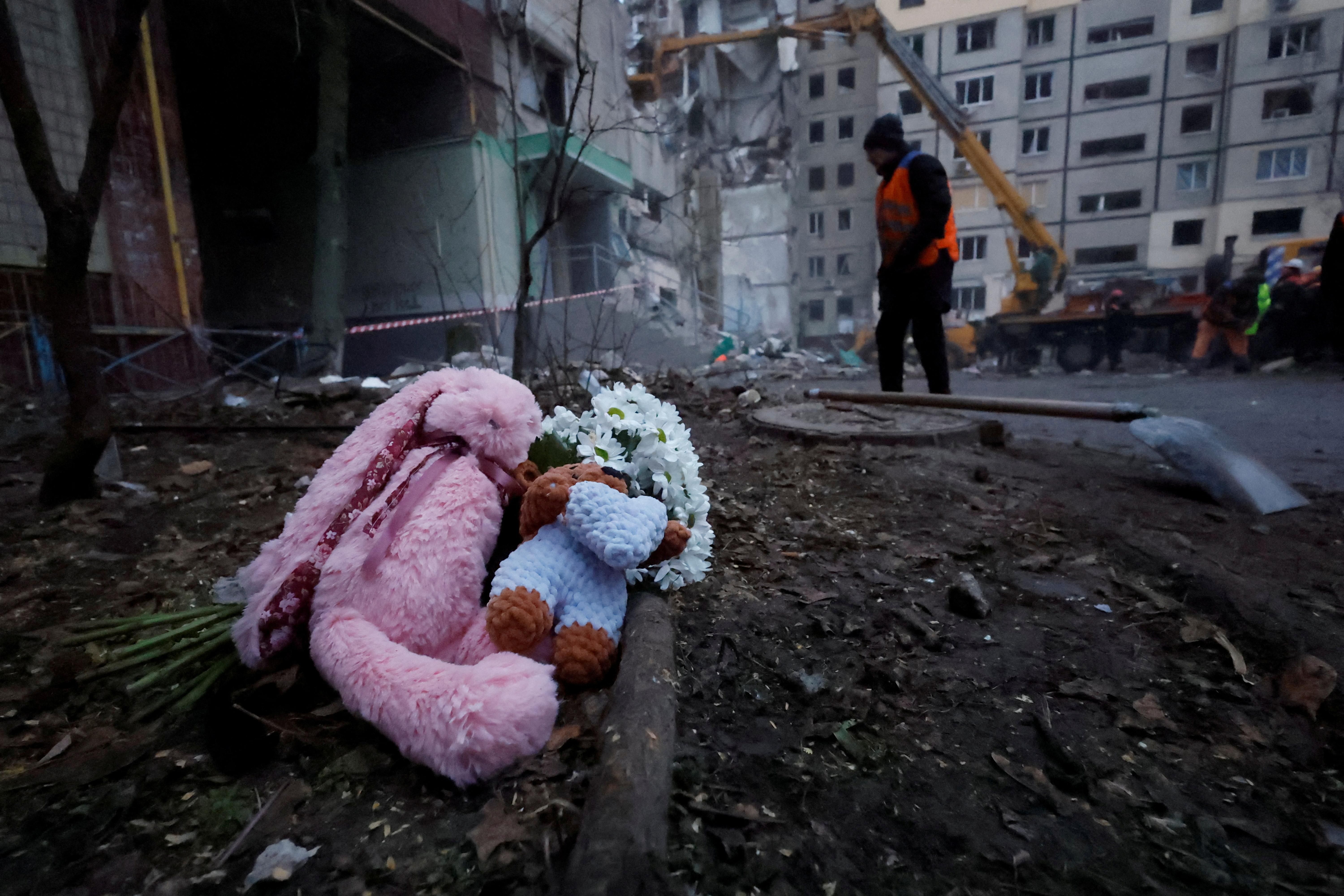What We're Watching: Russia lashes out, Khan ups election ante, China's population shrinks
Russia strikes civilians, braces for long war in Ukraine
At least 40 people died in Saturday's Russian missile strike on an apartment building in Dnipro, Ukraine's fourth-largest city, authorities said Monday. It was one of Russia's deadliest attacks against Ukrainian civilians since the invasion began, as Moscow doubles down on the strategy of targeting civilians to turn the tide of the war in its favor. Meanwhile, the Washington, DC-based Institute for the Study of War on Sunday claimed that the Kremlin is preparing for a drawn-out conflict and a fresh mobilization to push back against Ukraine's military gains in recent months. What does that mean for Kyiv? That the US and its NATO allies will need to stay the course on providing weapons to keep the Russians at bay. Clearly on message, the UK on Friday announced that it would for the first time send Challenger 2 tanks to Ukraine. This might open up a can of worms within NATO: Poland wants to supply the Ukrainians with German-made Leopard tanks but has yet to get the green light from Berlin, while the US, Germany, and France have so far only agreed to give Ukraine light armored vehicles. If they all go a step further and send in the heavy equipment, Vladimir Putin will know that Ukraine's friends remain committed to its defense and are less worried about Russia escalating.
Khan keeps pushing for snap election
Pakistan’s former PM Imran Khan, who was ousted last April, continues to try to force the government into holding early elections. In his latest maneuver, the 70-year-old former superstar cricketer has managed to dissolve the assembly of Punjab province, home to about half of the country's population. According to the rules, Punjab must elect a new legislature within 90 days. As Khan is threatening to dissolve another provincial assembly soon, potentially triggering snap elections in two of Pakistan’s four provinces, he has created a conundrum for his rival, current PM Shehbaz Sharif. Should Pakistan, which is dead broke, engage in two massive — and expensive — elections now and then again at their due date in November? Or should the government just give up and let Khan have his nationwide polls immediately? Considering that Khan’s popularity has only soared since his ouster, and even more so after the attempt on his life in October, he’s probably likely to dominate the election. But nobody gets to win a vote in Pakistan without the blessing of the all-powerful army, whom Khan has been gunning for. Will the generals he’s challenged so brazenly for many months let him return to power?
